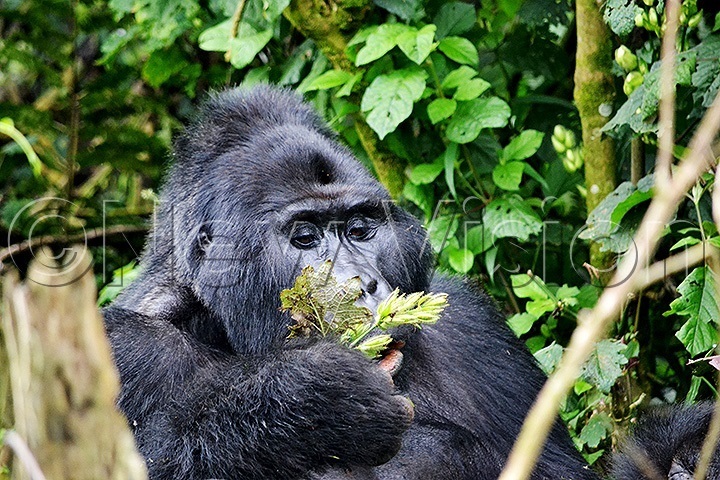Man who killed gorilla jailed 11 years
Byamukama, who was on a hunting spree in Bwindi Impenetrable National Park, had a nasty encounter with Rafiki, a silverback and the king of Nkuringo gorillas group. He stabbed Rafiki in the abdomen, bringing his life to an end.
COURT| WILDLIFE|POARCHING
It is going to be 11 long years behind the bars for Felix Byamukama who speared an alpha male gorilla at Bwindi Impenetrable National Park in south-western Uganda, last month.
The Kabale Chief Magistrate's Court handed Byamukama the sentence on Wednesday, according to a statement from the Uganda Wildlife Authority (UWA). Byamukama is a resident of Murole village in Nteko Parish in Nyabisenya sub county of Kisoro district.
Byamukama, who was on a hunting spree in Bwindi Impenetrable National Park, had a nasty encounter with Rafiki, a silverback and the king of Nkuringo gorillas group. He stabbed Rafiki in the abdomen, bringing his life to an end. Rafiki was estimated to be about 25 years.
Byamukama pleaded guilty to the three counts of illegal entry into the park and killing a gorilla and a duiker. He was sentenced to five years on each count to run concurrently, after sentencing him to six years on case file one, according to the UWA statement.
Byamukama's colleagues; Evarist Bampabende, Valence Museveni and Ynasi Mubangizi denied the charges and were remanded to Kisoro Prison.
"We are relieved that Rafiki has received justice and this should serve as an example to people who kill wildlife," Sam Mwandha, UWA executive director, said. "If one person kills wildlife we lose, we request everyone to support our efforts to conserve wildlife."

BACKGROUND
Gorilla tourism started in Nkuringo in April 2004 after the habituation of the first group that started in 1996. The group ranges the Kashasha river valley below the Nteko ridge and was often found foraging outside the park, sometimes on land belonging to the locals.
The land on which the Nkuringo mountain gorillas used to spend most of their time was later bought by UWA with the support of Africa Wildlife Foundation, Bashir Hangi, the UWA public relations manager said.
SUCCESSION BATTLES
Wilber Tumwesigye, a ranger and tracker of the mountain gorillas, said Tabu whose name means ‘problem', took the mantle of leadership at Nkuringo after Rafi ki's death. However, Tabu, who is unpopular among the females, could not assert himself as the new leader of the group.
This provided a chance to the most outstanding black back known as Rwamutwe. He was named so because he has a big head. Rwamutwe took the chance with both hands and is currently leading the team, Tumwesigye said.
He added that the gorillas groom their leaders. The gorillas that will become alpha males have to prove themselves as rear guards, also known as leading from the back.
As the alpha male gives direction to the group regarding where to go, the black back that is leading from behind (the rear) has to protect the group from being attacked from behind.
After conceding defeat to Rwamutwe, Tabu has retreated to the back, where he is supporting Kamara to protect Nkuringo from the back. Muhoozi, the fourth blackback, mature male gorilla aged 11 years, named after the First Son, Lt Gen
Muhoozi Kainerugaba, is currently not interested in leading the pack. Muhoozi is the youngest of the four blackbacks, Tumwesigye said.
Once the blackback at the rear gains more support and confi dence, he can rise to the top by challenging the silverback. This could be through a fi ght or fraternising with the females in the presence of the silverback.
The global population of mountain gorillas is estimated at 1,008. Bwindi is home to 459 of them. The remaining population is shared by Uganda (Mgahinga), Rwanda and DR Congo.